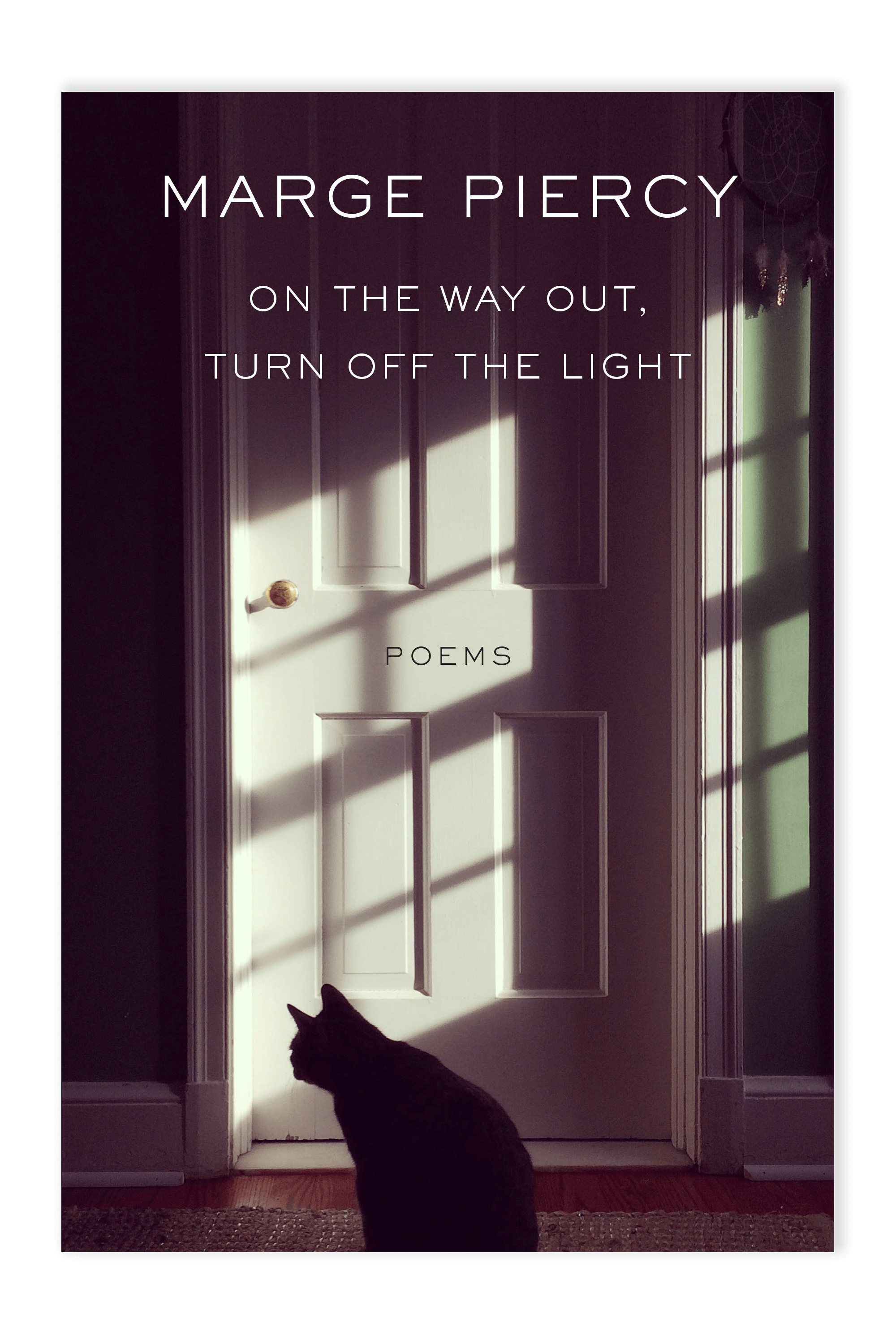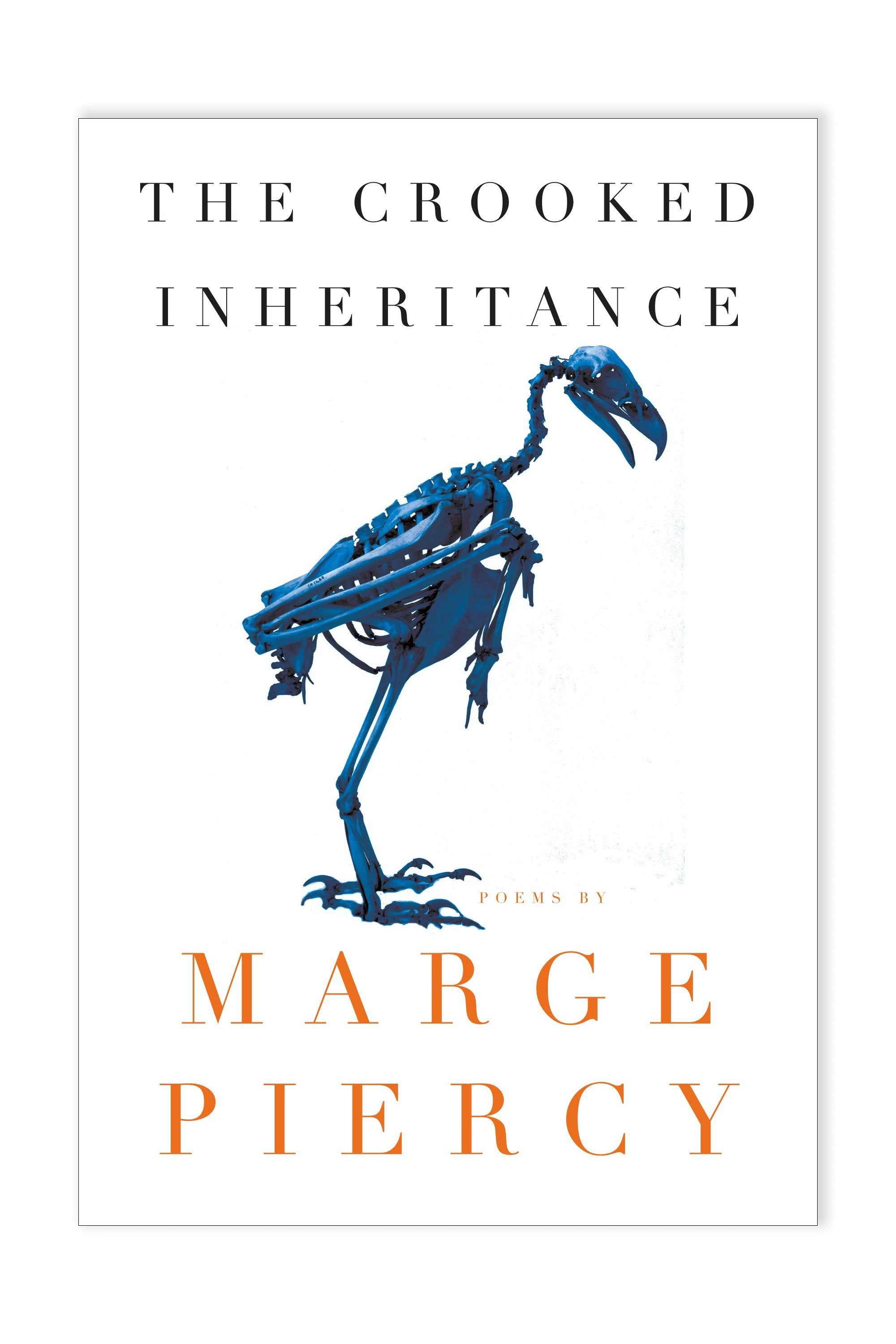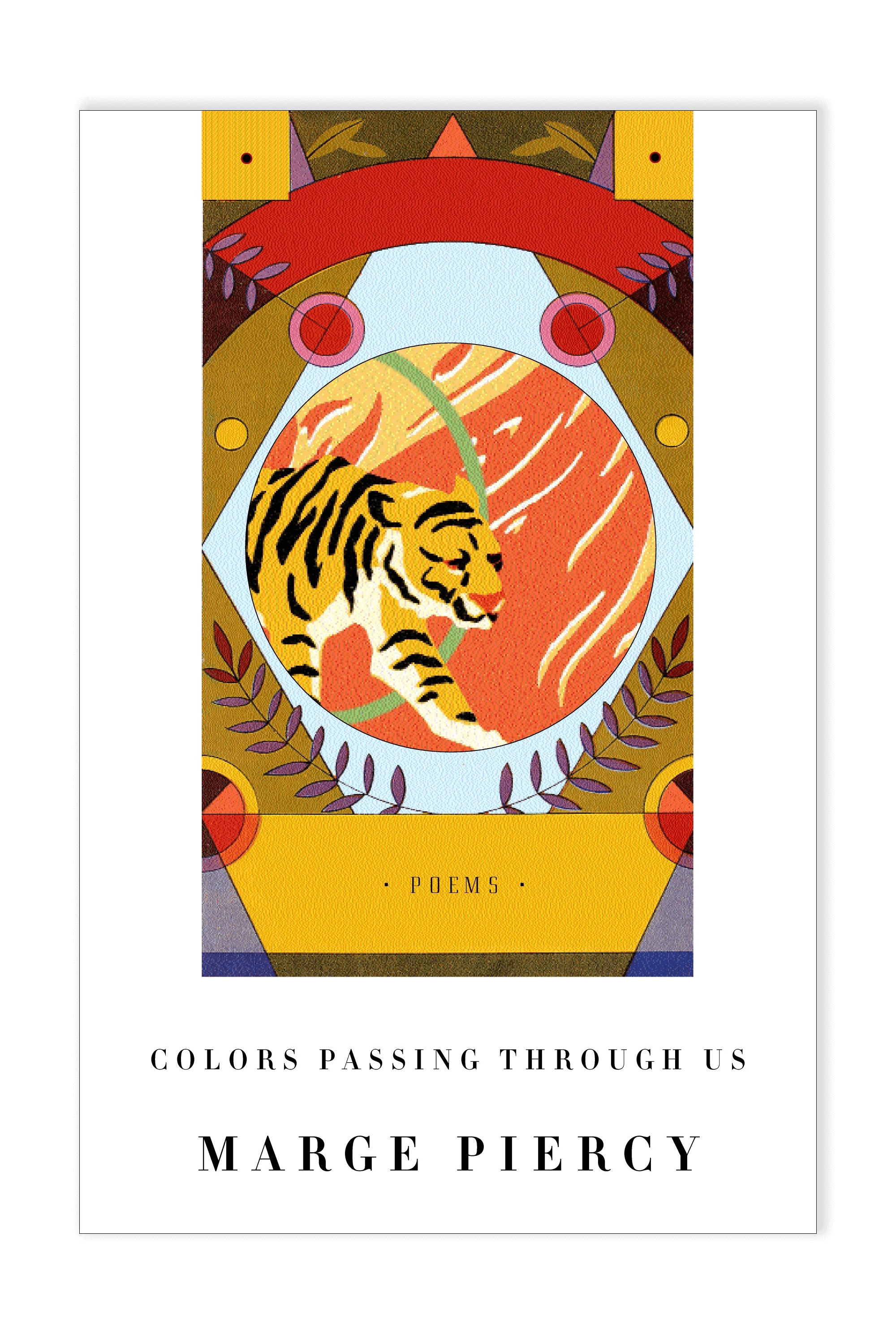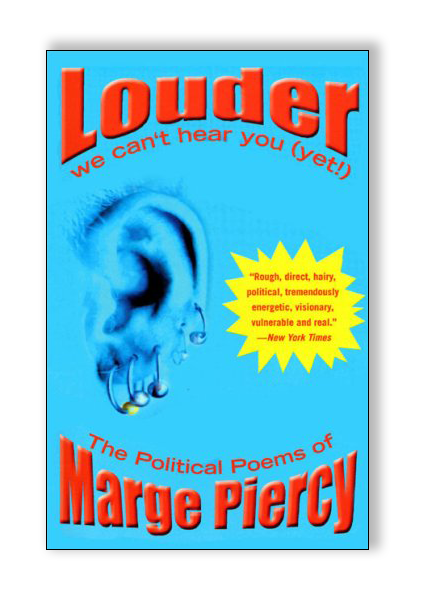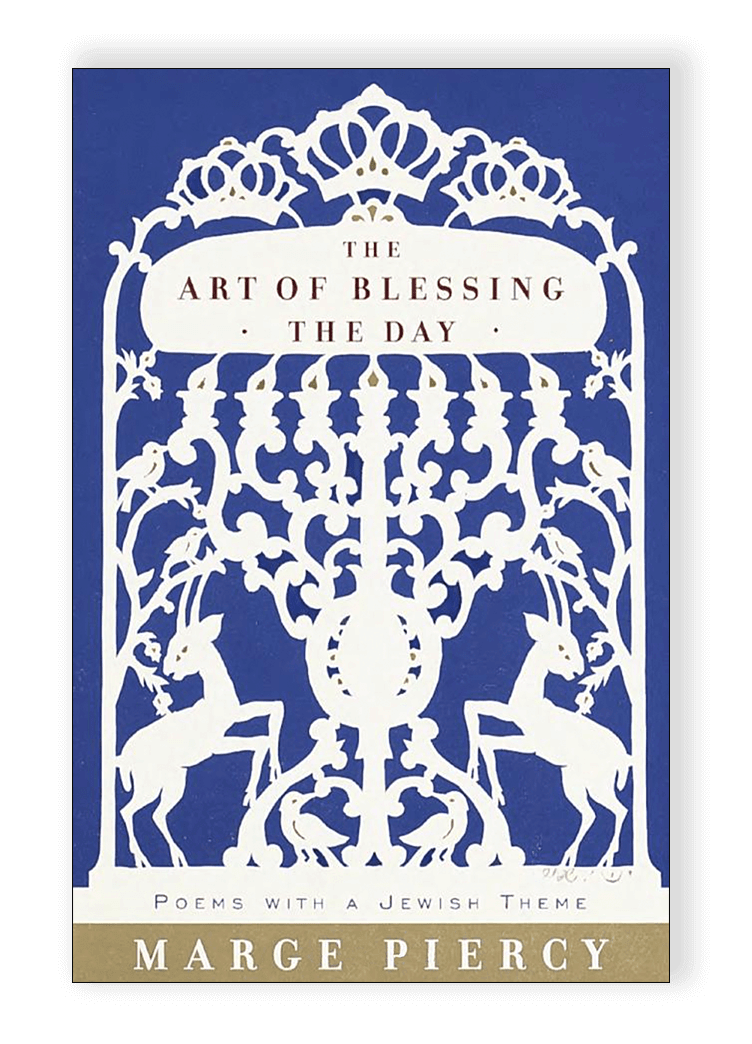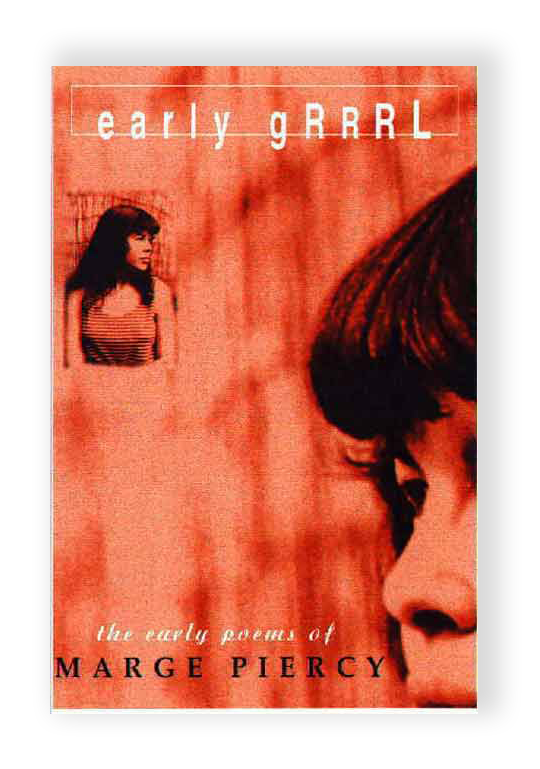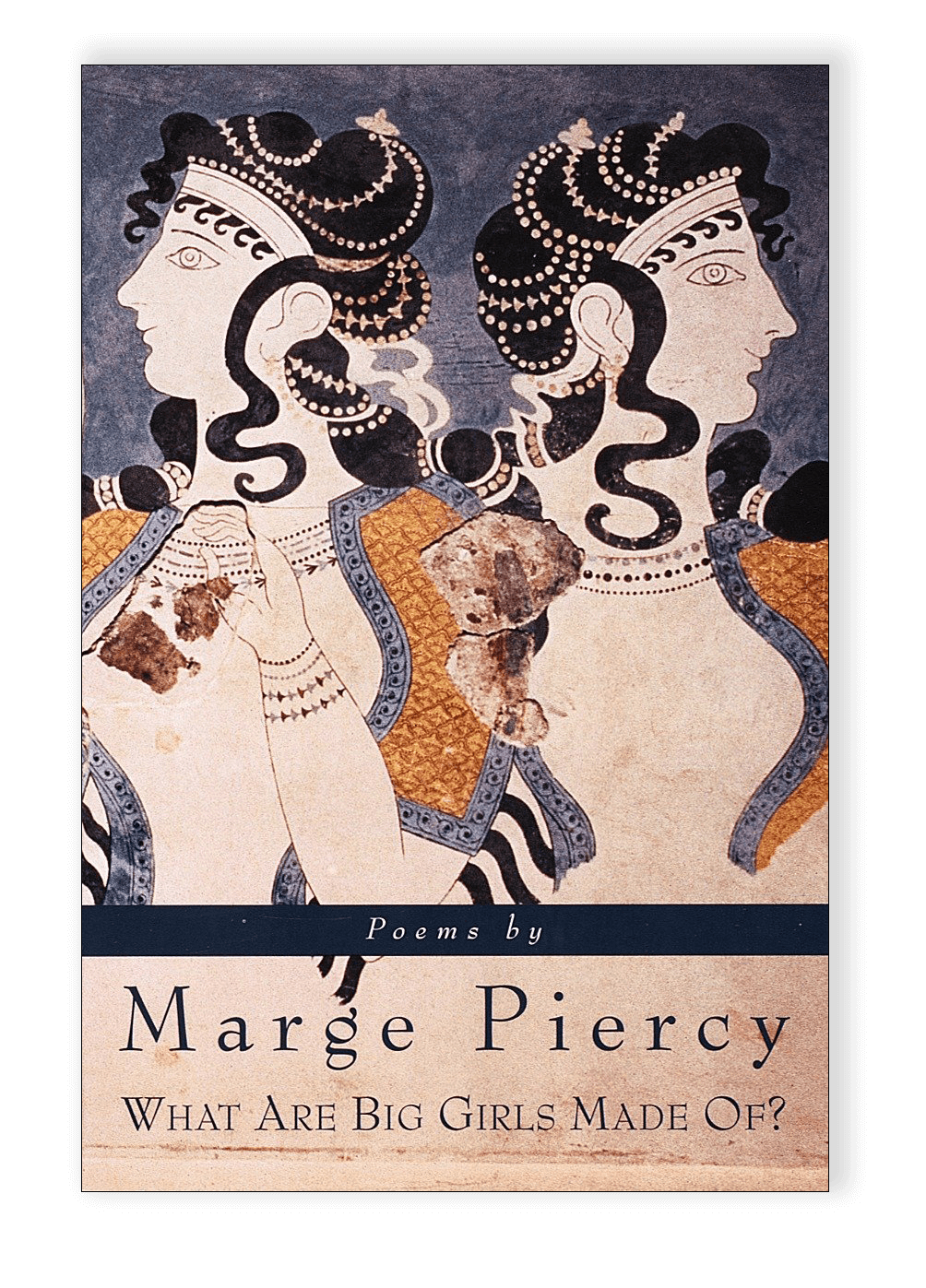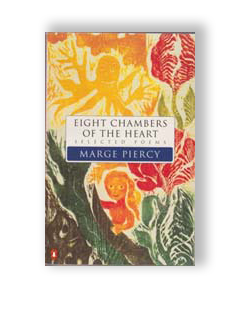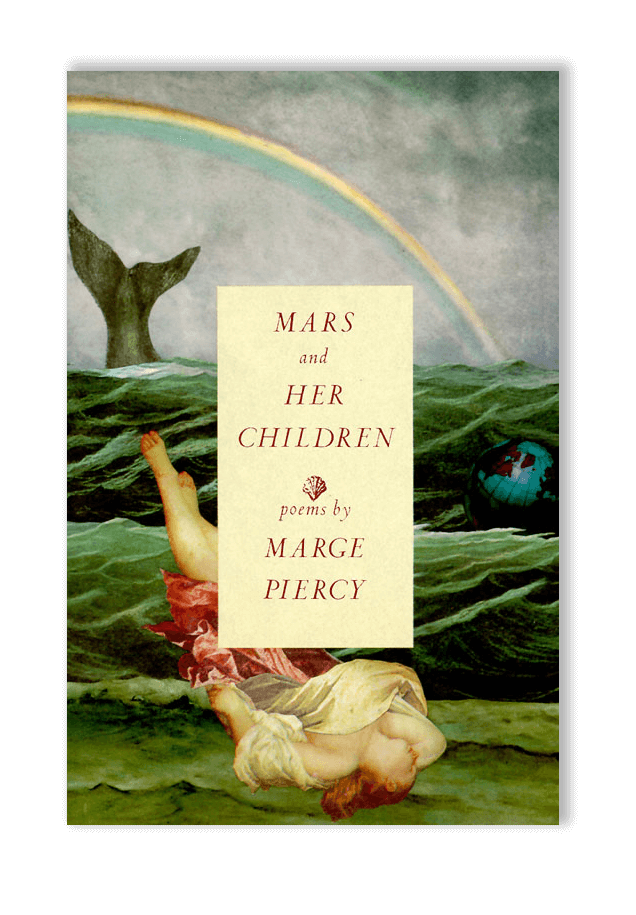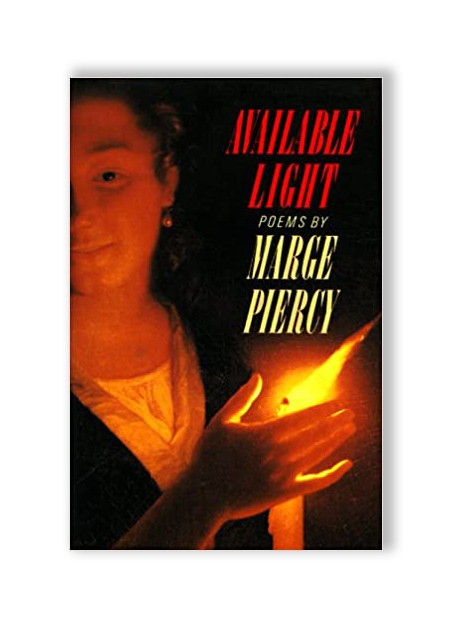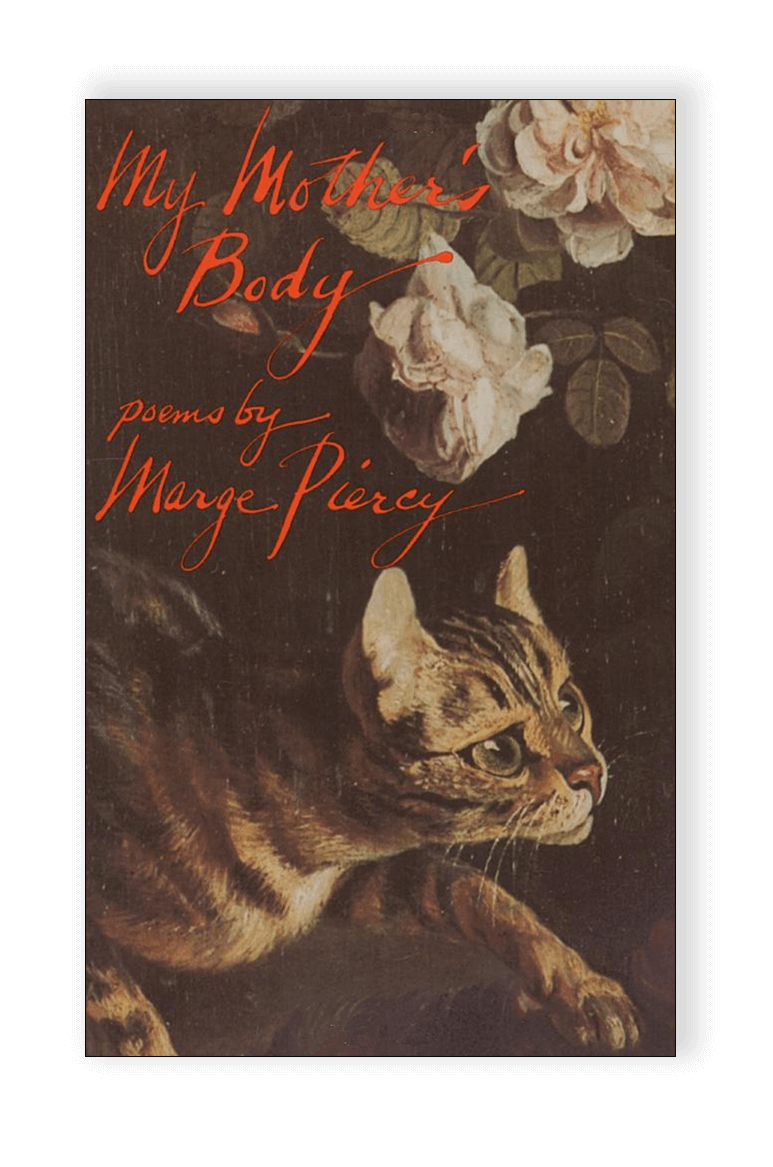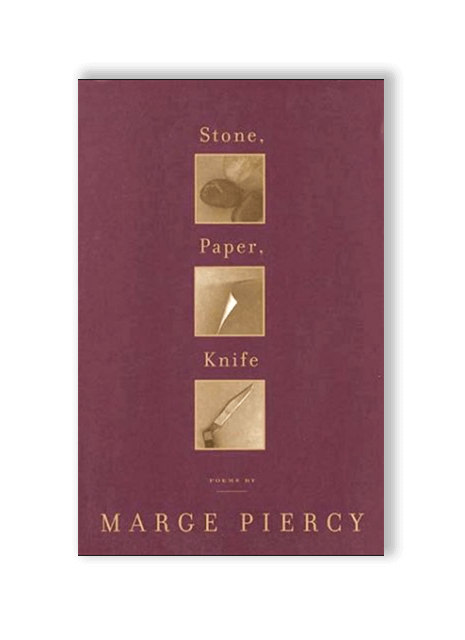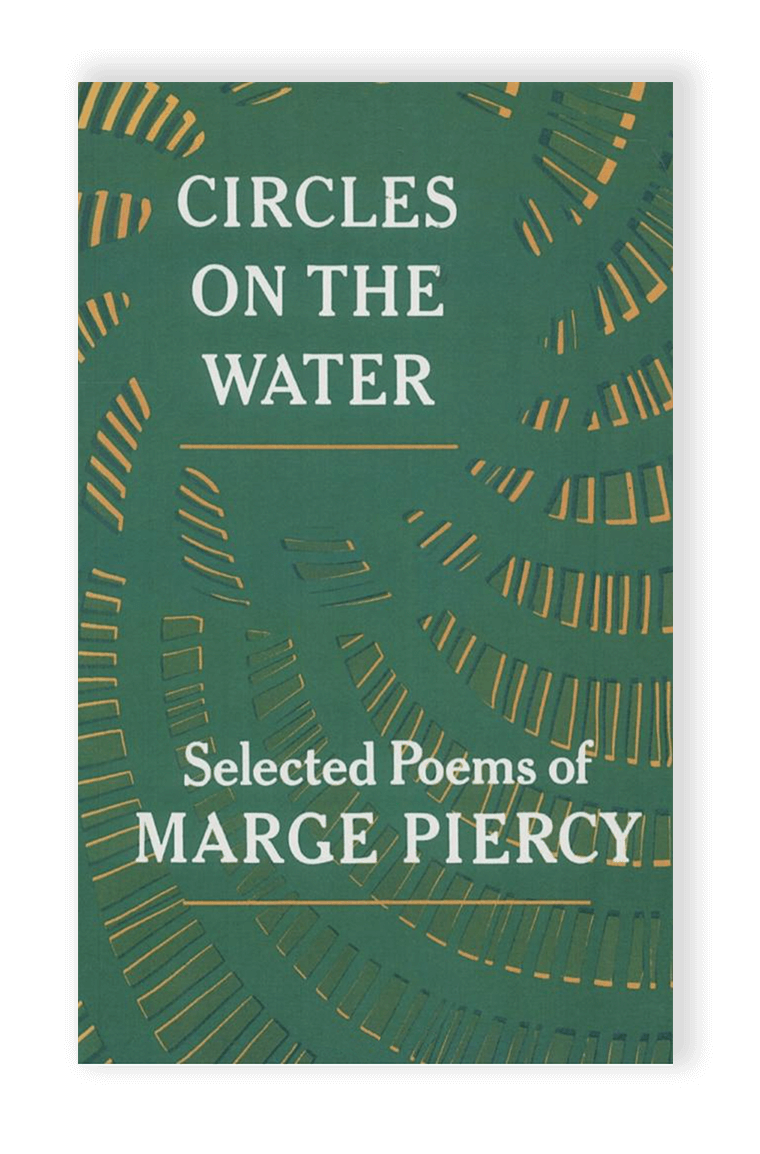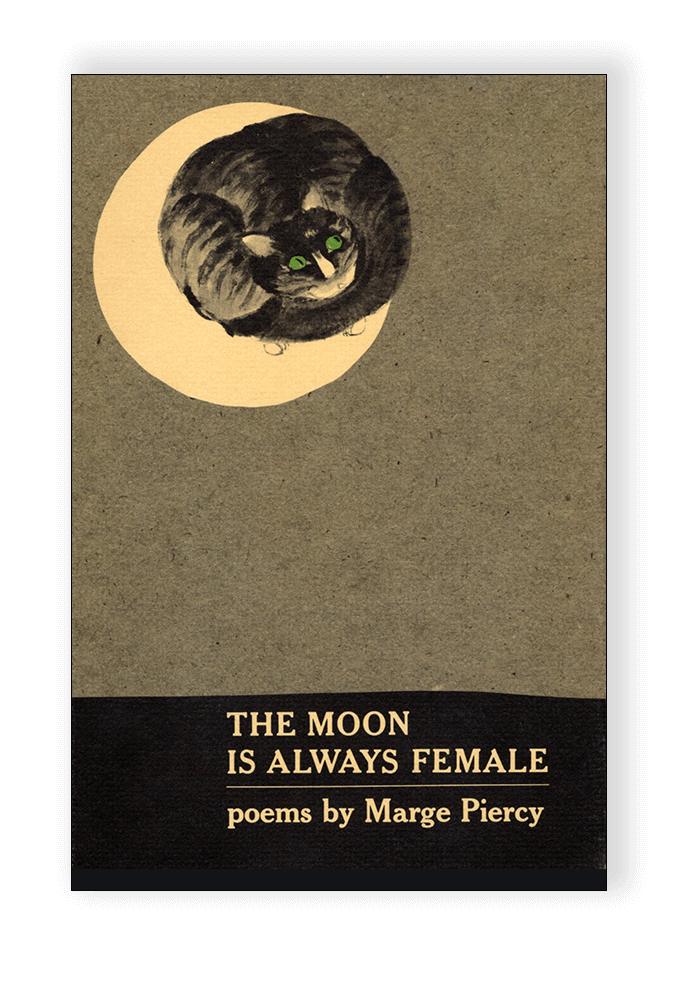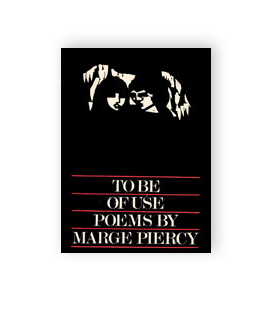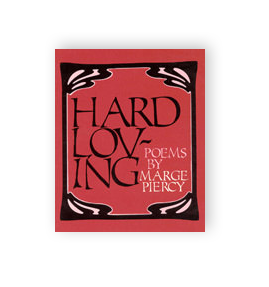Poetry
ABOUT ON THE WAY OUT, TURN OFF THE LIGHT
A bountiful group of poems–direct, honest, and revelatory–that reflect on language, nature, old age, young love, Judaism, and our current politics, from one of our most read and admired poets
“Words are my business,” Marge Piercy begins her twentieth collection of poetry, a glance back at a lifetime of learning, loving, grieving, and fighting for the disenfranchised, and a look forward at what the future holds for herself, her family and friends, and her embattled country. In the opening section, Piercy tells of her childhood in Detroit, with its vacant lots and scrappy children, the bike that gave her wings, her ambition at fourteen to “gobble” down all knowledge, a too early marriage (“I put on my first marriage / like a girdle my skinny body / didn’t need”). We then leap into the present, her “twilight zone,” where she is “learning to be quiet,” learning to give praise despite it all. There are funny poems about medicine ads with their dire warnings, and some possible plusses about being dead: “I’ll never do another load of laundry . . .” There is “comfort in old bodies / coming together,” in a partner’s warmth – “You’re always warm: warm hands / smooth back sleek as a Burmese cat./ Sunny weather outside and in.”
A treasure trove of new poems by one of our most sought-after poets: poems that range from descriptions of the Detroit of her childhood to her current life on Cape Cod, from deep appreciations of the natural world to elegies for lost friends and relationships, from a vision of her Jewish heritage to a hard-hitting take on today’s political ironies. In her trademark style, combining the sublime with the gritty, Marge Piercy describes the night she was born: “the sky burned red / over Detroit and sirens sharpened their knives. / The elms made tents of solace over grimy / streets and alley cats purred me to sleep.” She writes in graphic, unflinching language about the poor, banished now by politicians because they are no longer “real people like corporations.” There are elegies for her peer group of poets, gone now, whose work she cherishes but from whom she cannot help but want more. There are laments for the suicide of dolphins and for her beloved cats, as she remembers “exactly how I loved each.” She continues to celebrate Jewish holidays in compellingly original ways and sings praises of her marriage and the small pleasures of daily life. This is a stunning collection that will please those who already know Marge Piercy’s work and offer a splendid introduction to it for those who don’t.
This new gathering of Marge Piercy’s poems—funny, angry, in awe of life, compassionate—brings us the heart of her mature work, the first selected since CIRCLES IN THE WATER in 1982.
Here poems chart the milestone events and fierce passions of the poet’s middle years, her Judaism, her deep connection with nature, her politics. There is the death of her mother, whom we meet as a young woman, “awkwardly lovely, her face / pure as a single trill perfectly / prolonged on a violin.” She celebrates her new marriage not only for its romantic beginning, but for its quieter details: “love cherishes too the back pockets, / the pencil ends of childhood fears.” In every poem we hear the current of her convictions, which she declares in language unmistakably and colorfully her own, as when she encourages her readers to go the opera instead of the movies because “the heroine is fifty and weighs as much as a ’65 Chevy with fins.” And, in several poems, bearing the loss of people and time, she begins to examine her own legacy:
“Marge Piercy’s appetite in this new collection of poems is robust, vigorous and hybrid. Like a lightning rod, she brings large energies to ground, looking with her customary directness at exactly what is, yet transforming it by her looking as well. Piercy’s poetry raises hope, and raises also the deep hungers that affirm life’s presence in all its fullness-hunger for mangoes, love, work, light, beeswax, usefulness, plungings of language, openness, mystery, peaches, peace.” – Jane Hirshfield
“I look to each new installment of Marge Piercy’s poetry. I always appreciate her unique mixture of common sense with uncommon joyful insight. She’s political and sensual, astute and wild, truthful and always a step beyond the last. . . The Crooked Inheritance is her best yet.” – Joy Harjo
Piercy’s poems seem so natural and right, as perfectly formed as an egg or a daffodil. But these are made things, as cleverly constructed as handcrafted, rainbow-hued quilts and sweetly tart pies made with wild fruit that tastes of sun, rain, and soil. These are the arts primarily of women, and womanliness is the body and soul of Piercy’s strong and fecund poems. In her magnificent sixteenth collection, this major American writer is as subversive in her wit as she is cosmic in her perceptions and political in her convictions. Although she longs for a less poisoned and massively armed planet, she is not at all nostalgic for the “good old days” when confronting domestic violence was taboo and women like her mother performed endless, laborious, and thankless household chores day in and day out. Piercy is funny and trenchant in her parsing of our obsession with women’s appearance, lambent in her poems about prayer and Jewish ritual, ravishing in her descriptions of nature’s beauty, and lusciously sensual in her praise songs of sexual passion and love. Vital, bold, and visionary, Piercy is grateful for every hour of life and every drop of wisdom gleaned therefrom. – Booklist (Starred Review)
Now in Paperback from Alfred A. Knopf, Publishers
Library Journal’s Best Poetry Audio Book of the Year 2004
The audio CD “Greatest Hits” political poems from one of America’s best known and most frequently read activist poets.
“A world-class poet and poetry reader, Piercy presents road-tested work that has inspired and infuriated for decades. Her legacy of social protest is long, and this collection of her political best underscores her relevance in the world of literary activism. This is an excellent audio production.” — Christopher Caldwell, Audiobookcafe.com
“This year’s “best” list includes books by Carrie Fisher, John Grisham, Bill Clinton, Donald Trump, and Marge Piercy. LOUDER is a timely and important recording from one of the best-known activist poets in America . Piercy is at the top of her form as she addresses feminist issues, blasts the Bush administration, and more.” — Library Journal (Starred review)
Winner of the 2000 Paterson Poetry Prize
Appearing in various collections and spanning two decades, Marge Piercy’s liturgical poems have been recited in people’s homes and places of worship; in wedding and shabbat services; in rituals of the Passover Seder, Rosh Chodesh, and the Jewish High Holy Days. Some of these poems are highly personal and deal with the poet’s family and her childhood, while others concern themselves with midrash (contemporary interpretations of the torah) or a new take on Jewish tradition. Now, for the first time, all these poems have been collected in one volume.
ISBN: 0-375-40477-5
Published by Alfred A. Knopf
“Accessible, transformative, thrilling. Marge Piercy teases out the spiritual lights hidden within the most ordinary events. Here is poetry so reverent and disturbing that it borders on liturgy.”
This collection of new poems and old favorites, some long out of print and many never collected in Piercy's previous books, is titled in homage to the 'Grrrl' phenomenon — a contemporary expression of the pride and passion of young women's lives exploding in books and zines, concerts, films, and the internet — which in its honesty, accessibility and humor is remarkably descriptive of Marge Piercy's early work. Early Grrrl presents the bold and passionate ecological and political verse for which Piercy is well known alongside poems celebrating the sensual pleasures of gardening and cooking and sex; funny poems about cats and New Year's Eve and warring boom boxes; vulnerable poems in which a young working class woman from the Midwest takes stock of herself, the expectations others have of her and the limits of her world. Moving backwards in time and punctuated by short biographical essays, the arrangement of these poems displays the formation of a woman, an artist and a unique vision in which the natural, the political and the spiritual worlds become one and the same. For longtime fans and those new to Piercy's early work — "Clear but subtle, full of gusto and wisdom, guts and delicacy." (The Boston Globe) — this collection of new poems and old favorites is an indispensable addition to the oeuvre of one of America's best-known and best-loved poets.
WHAT ARE BIG GIRLS MADE OF? is one of three books of poetry named by the American Library Association as Notable Books of 1997, In their citation of the award, they say “Piercy provides a portfolio of poignantly evoked poems in this collection of her memories, thoughts and interactions with life and love.”
WHAT ARE BIG GIRLS MADE OF? collects mostly poems of the last four years. It starts with the Brotherless sequence, poems about Marge’s charming and much older brother, close to her in childhood but almost a stranger in later life – but never quite. The title poem and several of the others are about women’s bodies – who controls them, why we treat our selves as “a science project/ a garden to be weeded/ a dog to be trained….”
Eight Chambers of the Heart
Published in the United Kingdom by Penguin, the British selected poems.
“There is no poet writing today who can give us the sensuous world as Marge Piercy does in these marvelous poems. At last I have found someone worthy of Colette, she who also kept life alive in troubled times by describing a cat or a flower.” — May Sarton
“These are wise poems, ripe with the sweetness of apples, pithy with tartness of truth. Each is a veritable parable of right living minus any hint of sour righteousness. Absolute awe is the core. This is Marge Piercy at her best.” — Joy Harjo
“When you see her name in the table of contents of a magazine, you turn at once to her poem, story, or essay. When you see her book in the store, you buy it before reading the reviews, knowing that this work is necessary to your enlightenment and survival. It’s a short list: Nadine Gordimer, Adrienne Rich, Margaret Atwood and Marge Piercy.. . She is one of these women, and yet her own unique and original self. I’d know that voice anywhere.”
— Carolyn Kizer
Marge Piercy’s eleventh collection of poetry is unusually rich and diverse. These are poems of extraordinary immediacy, strength and humor, poems of deep passions and far-ranging concerns: poems written at mid-life and illuminated by the “available light” of a mature and generous perception.
The mood of the first section, “Joy Road and Livernois,” ranges from the harsh autobiographical honesty of the title poem (“I got out of those Detroit blocks where the air / eats stone and melts flesh”) to the humor of “Eat fruit” and “Something to look forward to” – perhaps the funniest poem on menstruation ever written. In “Hard time,” the author writes of the agony of South Africa; in “Loving the crone,” about the concerns of the aging (“Whenever we weep, if we understand / we may grow like a stalactite longer, stronger”); and in “Daughter of the American evolution,” of our particular place in the general scheme of life.
My Mother's Body
MY MOTHER’S BODY, Marge Piercy’s tenth book of poetry, takes its title from one of her strongest and most moving poems, the climax of a powerful sequence of Poems to her mother. Rooted in an honest, harrowing, but ally ecstatic confrontation of the mother / daughter relationship in all its complexity and intimacy, it is at the same time an affirmation of continuity and identification.
“The Chuppah” comprises poems actually used in her wedding ceremony with Ira Wood. This section sings with powerfully female love poetry. There is also a sustained and direct use of her Jewish identity and faith in these poems, as there is in a number of other poems throughout the volume.
Readers of Piercy’s previous collections will not be surprised to encounter her mixture of the personal and the political, her love of animals and the Cape landscape. There are poems about doing housework, about accidents, about dreaming, about bag ladies, about luggage, about children’s fears of nuclear holocaust; about tomcats, insects in the rafters, the influence of a name, apple blossoms and blackberries, pollution, and some of the ways women objectify one another.
Some of the most moving poems are domestic, as in the final sequence, “Six underrated pleasures,” which finds in daily women’s tasks both pleasure and mystery, affirmation of serf and connection with the mother.
In all, My Mother’s Body is one of Piercy’s most powerful and balanced collections.
Stone, Paper, Knife
STONE, PAPER, KNIFE centers on the loss of an old love and the beginning of a new one, a woman’s politics and identity rooted in the land. The early sections are about divorce in a larger sense, divorce not only from a bonding, but a divorce of sensibility, the inability to connect with each other and the world we live in.
The sequence “Elementary Odes” (the title is in homage to Pablo Neruda) consists of poems that passionately embody the ecological side of feminism.
The later sections of the book form a prothalamion celebrating a marriage about to occur – the joining of woman and man and the joining of the human community to the larger community of all living on earth. Piercy believes we must relearn our place as part of the whole instead of as an active force attacking a passive object. It is a cleansing of our perceptions and our ability to love which these poems celebrate and embody, urging that we must “bear hope back into the world.”
Circles On The Water
Now in its Fifteenth printing
First published by Alfred A. Knopf in 1982, and continuously in print ever since, CIRCLES ON THE WATER is home to some of Marge Piercy’s best loved and most requested poems, including: “To Be of Use,” ”A Work of Artifice,” ”The Secretary Chant,” ”Barbie Doll,” ”Unlearning Not to Speak, ” “For the Young Who Want To,” ”Laying Down the Tower” (the complete Tarot Deck sequence), ”Rape Poem, ” ”The Poet Dreams of a Nice Warm Motel, ” ”Attack of the Squash People, ” ”For Strong Women, ” ”What’s That Smell in the Kitchen?,” ”Right to Life,” and an introduction in which Piercy talks about how and why she writes poems.
Circles on the Water:
The Selected Poems of Marge Piercy
Published by Alfred A. Knopf, NY
ISBN: 0-394-70779-6
300pp.
“The poems in this volume fall into two parts. Hand Games, poems of the first section, is the daily bread of my past two years or so. They are the artifacts of loving in a personal way, of struggles in a wide and a narrower frame, of planting and harvesting in the earth and on paper, of building new friendships and mourning the death of friends. They speak of zucchini and oaks and cats, of jogging and writing, of nuclear power plants and suicide, of fat and of street hassling.
”The Lunar Cycle forms the second part. I first heard of the lunar calendar in my childhood, when I asked why Passover falls on a different date every year and was answered that it falls on Nisan 14, the fourteenth day of the lunar month of Nisan. The next time I came across the moon-month was in reading Robert Graves in search of the old goddess religions. But the lunar calendar has really only been an intimate part of my life since I moved near the ocean and the bay and had to become conscious of the tides; for one thing, to get the sweet Wellfleet oysters.
The Twelve-Spoked Wheel Flashing
“As I cannot separate the personal and political in my life, as I will not separate emotional and intellectual judgment and experience but try to weld them, as I go back and forth from the vital dying city with its wars of plunder to the vital dying country with its wars of plunder, I have tried to shape this book as a growth ring, the record of a year. The year is a wheel that turns but does not return us to where we were. An issue is as real to me as the apples on my trees, and that they sometimes have worms in them is political action, as is loving, as is talking, as is shaping these poems from the energy that comes through me from and for so many people, whose lives cross and touch, as we struggle enmeshed, sometimes blind and sometimes seeing and sometimes seeing each other.”
Breaking Camp
Breaking Camp was Marge Piercy’s first full length book of poems, published in 1968 by the Wesleyan University Press.
The poems of Marge Piercy speak with originality and power for the generation young enough to reject the bland fatuities of middle age, old enough to have acquired the firmness of full maturity. Hard and rubbly in texture, they deal directly with life’s most driving elements: love and sex, isolation and death, the strong and terrifying tides in public affairs that shape so much so much of our society, distort so many of our values and purposes. Marge Piercy is no genteel writer; but her more-than-realistic vision of truth, expressed with vigor and fire, is memorable indeed.
“Although Marge Piercy writes on such subjects as love, marriage, family and domestic life, her poetry is anything but conventionally feminine. No sentimentality, no self-pity or self-consciousness, no rebellion nor wonder at her special role, no gentle sensitivity... None of the usual strengths and weaknesses mark her tough adult awareness of existence, the hard brilliance of a world in which beauty and ugliness, love and pain, always co-existing but opposed through specific, flashing, interwoven images, create a tense sense of immediately felt life. Her vocabulary and imagery are striking; she is one of the few poets who can use one-syllable or even four-letter words without ostentation, since the energy and clarity of her intentions fuses them quite naturally into her poetic language. She is highly quotable, but ought not be quoted piece-meal, since her poems are all wholes, in which incisive phrases modify or reflect each other. It is angry, alive, loving, real poetry; not ""feminine,"" put powerfully female: Breaking Camp, indeed, to leave old concepts and establish a new territory between men and women.” --Kirkus Reviews
To Be Of Use
“.. . Marge Piercy proves that modern poetry can be both passionate and perceptive, well-structured and inventive.”
– Time
“Marge Piercy’s are courageous poems.. . . Where others seem intolerant, she is compassionate. Where others give way to fashionable despair, she hopes by doing and observing.”
— Richard Elman, Commonwealth
“Marge Piercy’s language is. . . as hard and uncompromising as her vision. Her craftsmanship is superb. . . . It moves in total harmony with her vision; both are as tough as nails. She writes fine poems indeed.”
— Emmett Jarrett, New: American and Canadian Poetry
“Marge Piercy is one of the best poets I’ve seen.”
— Stephen Dobyns, Poetry
Hard Loving
In this collection of poetry from the sixties, Marge Piercy writes “from the Movement, for the Movement.” The civil rights, anti-war, and women’s movements are reflected in these deeply personal poems filled with the fire, anger, and compassion which Piercy expresses so well. These poems are tough and tender, gritty with the urban landscape yet alive with reverence for the earth, enraged at the violence and injustices of man yet hopeful at the prospect of true community. Piercy’s second collection of poetry is about hard loving and hard living in a time of turmoil and optimism: “It is time to turn over. / It is time to loosen and to make new.”
“Angry, alive, loving, real poetry: not feminine, but powerfully female.” – Kirkus
“Piercy has the double vision of the utopian: a view of human possibility – harmony between the sexes, among races and between humankind and nature-that makes the present state of affairs clearly unacceptable by comparison.” – Margaret Atwood, New York Times Book Review

